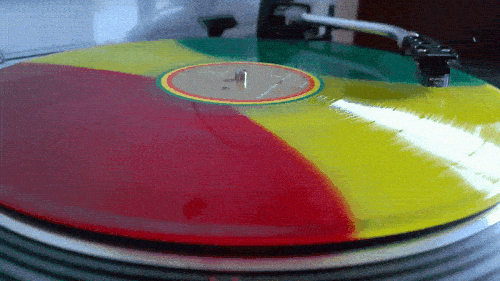The idea of owning and operating a radio show is a dream come true for many people. It is an exciting space in the music industry to occupy, though it can be tough to make your name. You’ll need a lot of funding and expertise to help your radio station get off the ground and work well. Even beyond the start-up costs, managing a radio station profitably can be hard work.
Keeping costs low is as crucial as maintaining high profits. While radio is still a wildly popular form of media, it does not hold the same level of influence that it may have done in previous decades. You’ll need excellent business sense and a talented team around you to make your radio station a success in today’s world.
Understand Your Operating Costs
The first step towards managing your radio station costs is to fully understand what they are. There are many costs associated with running a radio station, from music royalties to sound equipment and studio rental. There are so many costs associated with running a successful radio station that it can easily get overwhelming, so you could consider taking on a professional business advisor to help. Once you have worked out exactly what you’re spending your money on, you can start working out ways to cut back on inefficiencies.
Invest In Quality Equipment
You’ll need to ensure you have the very best in sound, editing and broadcasting equipment. Your success will depend on the quality of the service you provide to listeners, and the sound quality must be second to none. Much of the expense will depend on what type of radio station you’re launching. This could be on the web, AM, FM or terrestrial. Often, web-based radios will be the simplest to launch, as they rely on listeners tuning in via their own internet rather than having to pay to broadcast on the soundwaves.
Work Out The Cost Of Playing Music
Royalties can be one of the trickiest parts of running a radio station. You’ll need to pay royalties for any music played unless it is explicitly royalty-free. While choosing royalty-free music can cut down on costs, you will significantly limit yourself on what music you can play. It is best to do some research into the types of licensing and how to pay to play music. In many cases, once you pay for the royalties of an album or track, they are yours to play either for a fixed period or indefinitely.
Hire A Sales Team
A very large chunk of your station’s profits will come from advertisements. This crucial element of financing should be given the resources to ensure that your radio station thrives. You could start with a quality sales team of two or three people, who you task with finding local and national businesses that may be interested in advertising or sponsoring your radio station. Look for people with extensive sales experience, preferably within the radio industry. Sales aren’t just about finding new opportunities – your team should be equipped and able to nurture and retain existing business relationships as well.
Look At Overall Utility Costs
In addition to radio-specific costs, you’ll need to look at ways to manage the overall costs associated with operating a business. One of the biggest costs, aside from renting premises, is utility bills. Utility prices are higher than ever before, so you’ll need to be savvy and proactive about reducing these costs.
It is a good idea to shop around for your utilities and negotiate with providers to find the best deals. You could also look for specialist business comparison sites to help you narrow down your options for cost-effective utilities. The Business Water Shop is an excellent example of what to look for, specialising in helping companies find the very best business water contracts.
Appeal To A Target Audience
When creating a radio station, it is important that you appeal to a specific demographic. Trying to please everyone simply won’t work and will cost your radio station more in the long run. You need to find a gap in the market that you can fill effectively to make real money. You can start by looking at the radio shows on offer, both nationally and locally.
Consider the types of music the existing stations cater to and the most popular demographics of your local area. For instance, if there is a big ex-pat community in your area, consider making a specialised radio station featuring music from that country or community. Likewise, if your area is known for its rock or indie scene, consider tailoring your radio to that niche.
Write Quality Advertisements
Advertising is a significant source of income for most radio stations and one you should capitalise on as much as possible. One mistake that many small or new radio stations make is putting out low-quality advertisements. Listeners want to enjoy a quality experience when they listen to your station, and this includes when listening to the advertisers and sponsors. You should write quality advertising copy or hire a freelancer copywriter to ensure the adverts you play are of the best possible standard.
Use Social Media For Marketing
Social media can be a powerful marketing tool, allowing you to reach thousands of potential listeners quickly and easily. That being said, it can be tough to know how to manage a social media marketing campaign, and many businesses struggle to understand the best ways to engage with listeners online.
You should start by posting regular, high-quality content that captures the interest and imagination of your followers and listeners. Targeted social media advertising can also be invaluable to help you reach the audience you’re aiming for, ensuring that the right people are matched with your niche shows. It may help to hire a professional marketing agency until you get a handle on social media marketing – the cost will be far outweighed by the benefits.
Retain Your Talented Employees
Any business is only as strong as the team it employs, but this is doubly true for a radio station. Your success will be hugely dependent on the quality of your presenters, and you’ll need a full team of presenters who can connect with your audience. Once you find the right people, it is crucial that you retain them, doing what you can to ensure they have the benefits, career development and progression they need to feel valued in your radio station.
In addition to presenters, you’ll need qualified and experienced management, sales and sound teams. High turnover is an expense that your new radio station cannot afford, so you should take steps to hire the right people the first time and retain the employees you take on.
Conclusion
Running a radio station is no walk in the park, but with proper preparation and cost-saving ideas, you can build your station into a successful and profitable venture. It is crucial to make a solid business plan for your radio and ensure that you keep costs down throughout the critical first few months of operation. You should also be aware of when to spend and when to save and avoid making any cuts to your budget or operations that could impact the quality of the service you provide.

































